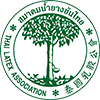The Thai economy improved from the previous month, supported by increasing activities in the tourism sectors, following higher numbers of foreign tourist and revenue. Private consumption increased and was partly benefited from the government stimulus measure in line with activities in the trade sector, manufacturing production, and private investment. Merchandise exports also increased from the previous month but remained concentrated in certain categories. Government spending continued to expand from both current and capital expenditures. On the economic stability front, headline inflation increased from the previous month, mainly due to higher inflation in fresh food, following a low base last year together with rising vegetable prices. Core inflation slightly increased from higher prepared food prices. The current account registered a smaller surplus as trade surplus diminished, while the services, income, and transfers displayed a larger surplus. Overall, the labor market remained stable compared to the previous month.
Summary - The Thai economy improved from the previous month from both the domestic and external demands. - Government measures, such as the exemption of fares in public transport in Bangkok for a week, the Easy E-Receipt campaign, and the second phase of cash transfer measures, have bolstered activities in transportation as well as spending on consumer goods and semi-durable goods. - Production in the automotive sector showed signs of improvement, particularly passenger cars but subdued external demand suppressed exports of automotives, especially pickup trucks and passenger cars to Australia. - Labor market remained stable but warrant a close monitoring in the construction and manufacturing sector. |








